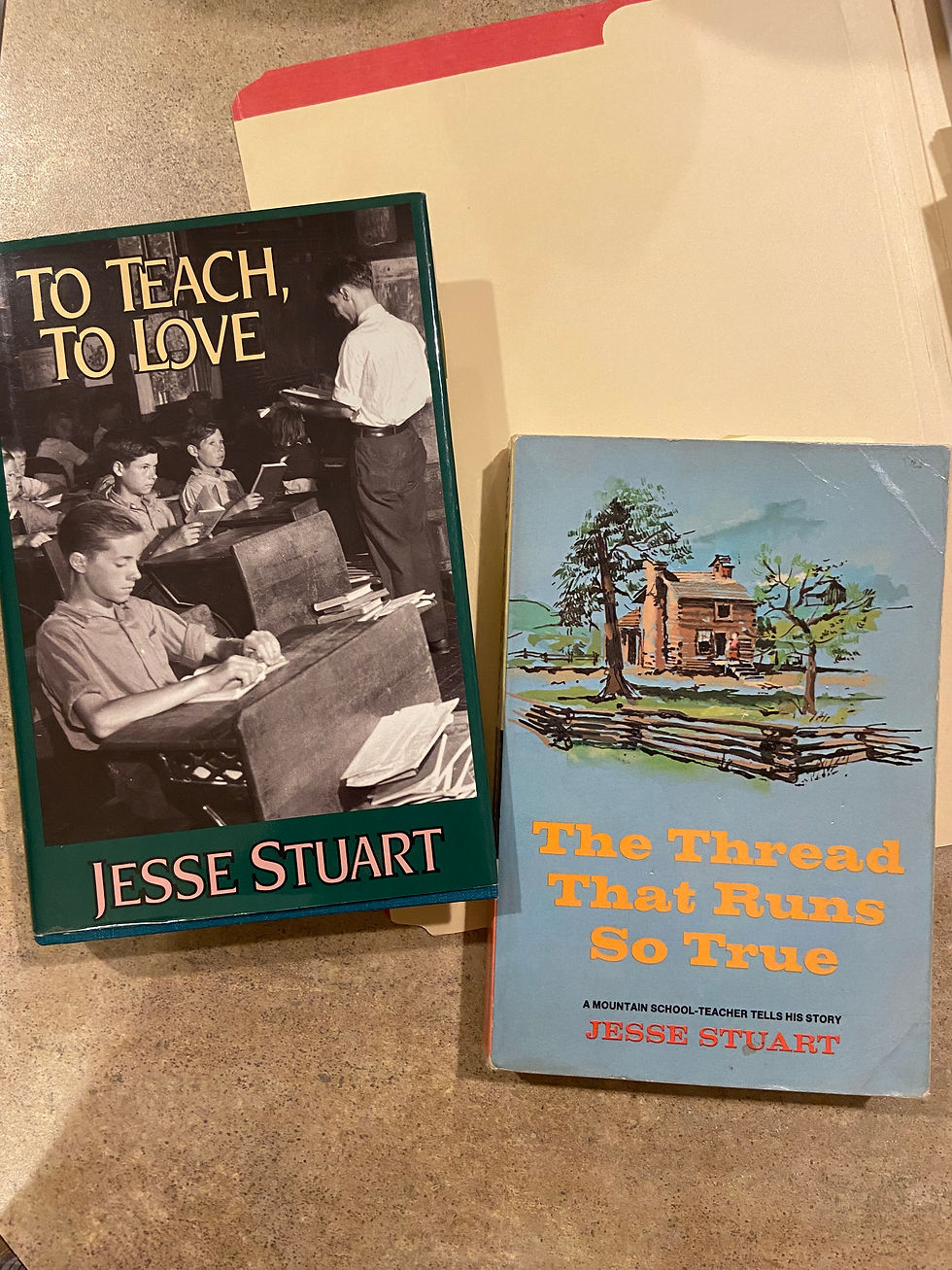Ever Learning: Preparing for School
- Dennis L. Peterson

- Aug 4, 2023
- 3 min read

The reopening of school for another year is just weeks away. In fact, some public schools in my neck of the woods have already begun. The aisles at Walmart have been clogged for weeks with back-to-school necessities that hadn't even been invented when I was a kid.
In preparation for the start of another school year, I've been busy preparing workshops for teacher in-service training at our church's Christian school. Although teaching methods and technology are constantly changing, the basic principles of good education remain forever the same.
As I've been preparing those workshops, I've been seeing similarities between good teaching practices and good writing habits.

Perhaps the most important principle is that both the teacher and the writer must have something of importance to communicate. Each must have a message of value. They must then decide upon the best way to get that message across to the students/readers. But perhaps most important of all, both teacher and writer must care intensely about that subject. If they don't care, if they aren't excited about it, how can they expect the students or readers to care and be excited about it?
To accomplish the objectives (i.e., getting the students to learn the desired lessons) requires hard work by the teacher. If done well, teaching is one of the hardest of occupations. Similarly with writing well. Good writing doesn't just happen. But even hard work can be enjoyable if it's approached with the right attitude.
Teachers learn by experience what works and what doesn't work in the classroom. What works well with one group of students or during one year might not work so well with different students at a different time, and different students learn in different ways. Similarly, writers must adapt their writing to fit their target audience. "One size" does not fit all. Vocabulary, style, subject matter, length, etc., must be taken into consideration. Both teachers and writers must be flexible.

Another critical similarity between teachers and writers is that both must continue to learn. After all, as Will Rogers famously said, "We're all ignorant, just on different subjects." Even within our fields of expertise, there are no know-it-alls. A good teacher, like a good writer, will continue to learn, improve, and grow. For either or both to be successful, they must continually improve by learning, either through others' experiences or their own, preferably the latter. (Ben Franklin, however, wisely said, "Experience is a dear schoolmaster, but fools will learn in no other.) One learns to teach by teaching, to write by writing, and one improves by recognizing mistakes made and correcting them moving forward.
But none of these truths amount to much unless the teacher or writer perseveres. One student who doesn't learn or one class that causes problems doesn't mean failure. After all, the student bears some responsibility for his learning. Neither do numerous rejections of one's writing mean the writer is a failure. It's the teacher and the writer who plow consistently forward, persevering despite problems, mistakes, and disappointments who truly succeed.
So, teacher and writer, recognize your calling. Take it seriously. Have something of value to share. Grow and develop into a better writer or teacher. And remember: you are a steward of your talents.
It won't always be easy. (It seldom is.) Not everyone will appreciate your efforts. But God knows, and He always rewards faithfulness. And faithfulness, not necessarily "success" or "results" as others might define them, is all He requires of His stewards.



Comments